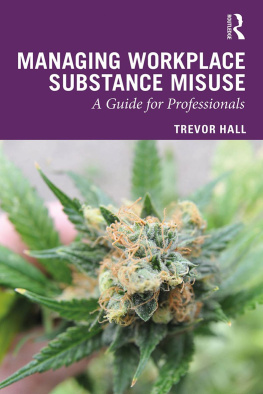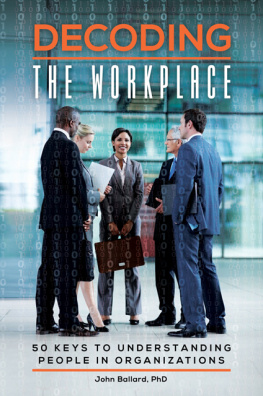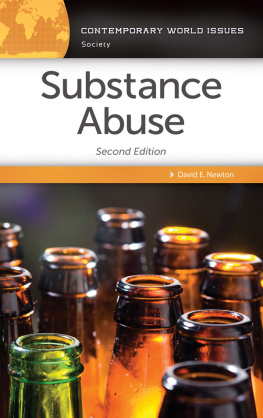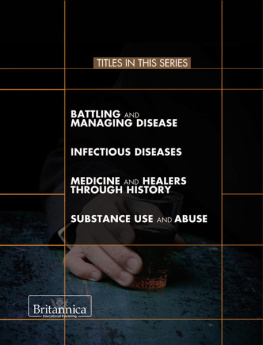- My business partner, Gordon Angus
- My good friend, Phillip Morton
- Matrix Diagnostics & Cansford Laboratories
- Professors Sheila McQueen & Jonathan Ling
- Routledge
Introduction
There is a need to build awareness concerning how drugs impact people and ultimately the workplace. This chapter is not designed to give the reader extensive training in substance misuse and the management of people caught up in it. Rather it is a basic look at some of the traditional thinking and reasons why people misuse substances and alcohol, as well as issues and considerations you may be faced with in the process of managing your workplace Substance and Alcohol Misuse Policy (SAMP), workplace Programme Of Testing (POT) and workplace Employee Assistance Programme (EAP). Most of all, it provides additional information for the employees themselves within an overall Substance Misuse Management Programme (SMMP).
More and more companies nationally and globally are engaging with workplace wellbeing initiatives that examine both the physical and mental health assessments of their workforce and of contractors who work with them. Workplace testing for drugs, alcohol and other substances (legal or otherwise) has been accepted for some time and indeed mandated in many circumstances, across many industries. In the UK, public sector and certain private sector industries mandate or are subject to mandatory testing in a variety of legislative and job-specific situations, most allied to physical/mental health wellbeing for those job-specific/sector-specific reasons, induction protocols and so on. Airline pilots and air traffic controllers are subject to much more stringent alcohol cut-off levels; the same is true of train conductors, rail trackside workers and other professions. Why would we not consider our insurance obligations and apply them to every UK employees fiduciary duty to be fit for work ? What is the law in your country around the employees legal duty to be fit for work? Most employers have a zero-tolerance policy with regard to illegal substance use; there is, however, a fragmented and under-reported approach to the impact of legally prescribed medications in the workplace, especially the use and misuse of opiates.
All aspects of workplace activity depend on the employees engagement with the companys business philosophy, governance and business activities, at and away from the workplace while on duty. It has been my approach, as mentioned previously, that any UK workplace substance and alcohol misuse programme emanates from UK law, which requires that
It is an employees Fiduciary Duty to be Fit for Work
How do you manage that duty or even examine/measure that fitness at any given moment in the UK or in your own country? How do you identify what constitutes culpabilities in law? What are the responsibilities applied to a job description/terms and conditions (T&Cs) of employment? Now that Canada has legalized the personal use and possession of cannabis, how is that country going to examine/measure an employees fitness for work? Fitness to drive? Fitness to be in charge of a child? And there is much more. In addition, how will that country manage the combined use/misuse of cannabis with other legal or illegal substances?
The employer will always have a more profitable business when the workplace is harmonious, productive and above all a safe place to be. There is no doubt that the use of illegal substances and some misuse of legal substances are a disruptive element in the workplace that leads to loss, intimidation, an unpleasant employee environment and preventable mental and physical health issues (see on workplace culture mapping). There has been a steady evolution of some sectors into a working environment that has stretched the meaning of the term employee engagement within the workplace. The erosion of some full-time employment positions and a truly living wage is due in part to issues such as:
- Zero hours contracts
- More reliance on lower paid agency staff than on full-time staff
- Seasonal work/temporary contracts, etc.
- The peaks and troughs of the economy, whether national or global
- In the service industry, the employees reliance on tips to enhance low pay, and so on
While employees in these situations may feel disengaged there is a huge requirement for the employer to engage with a range of circumstances under the threat of prosecution, fines or operational mechanisms and business development/monitoring in areas such as:
- Health & safety legislation
- Employment law
- Insurance cover and risk assessment
- Statutory requirements
- Environmental compliance issues
- Public liability insurance
- Professional indemnity insurance
- A variety of other indemnity insurances
- A plethora of civil and criminal litigations, constantly changing
- Risk-averse banking and funding options that cause shortcuts or restrict investment
- Working time directives (EU)
- Industry-specific accreditations
- Personnel development
- Immigration legislations
- Maternity/paternity leave
- Mandatory pension planning for staff, and so much more
The list goes on. At what point does the employee engage with the employer who is already compelled to engage with a great many compulsory obligations/regulations, including civil and criminal legislations combined with statutory requirements, many of which are missing from T&Cs of employment? An employer wants to become an employer of choice and attract a higher calibre of employee into a safe working environment. An employee wants to have a safe working environment free of fear of intimidation, which is supportive and inclusive to all, especially with a wage that makes it possible for employees and their families to live reasonably comfortable and stress-free lives.
This chapter is further designed in terms of awareness of both parties obligations and commitment, specifically in the area of substance and alcohol misuse in the workplace. There is a direct correlation between illegal drug use and criminality, purely by the manner in which illegal substances are bought/sold, manufactured and legislated against, anywhere in the world. Many companies and people are unaware that the misuse of prescribed medications is also a major issue, not just for the workplace but also across society, especially opiate misuse/dependency. If the media is to be believed, substance misuse is an epidemic within the global society. The workplace must manage issues that are not being best managed in society, for a variety of reasons. This is evidenced by a great many UK and other nations law enforcement agencies stating they will not attend to or even deal with low-level drug misuse, a stark contrast to the situation in the Philippines.
The problem lies in the fact that drugs are an escalation product; a user will very rarely stay at the level of use right from the start and then all the way through the journey of misuse/abuse. A drug will become less effective, the body will become more tolerant and before long things will have escalated out of control and what was a low-level misuse has become a mental or physical wellbeing issue, dependency or a problem across multiple issues, some of which are outlined near the end of this chapter.
The new drug driving regulations announced in England, Wales and Northern Ireland in March 2015 now set a different standard of compliance and include a wider variety of offences that can be committed by a company, its management structure and employees collectively. What are the drink/drug driving regulations that apply in your country? What offences can be committed by the employee and the employer around your legislations? How do you mitigate against them in your policy? How do you apply them to an employees T&Cs of employment?






